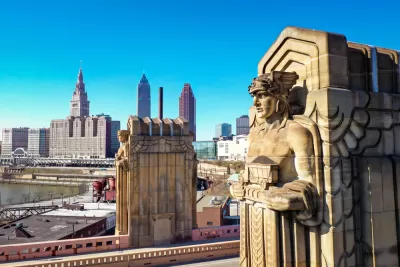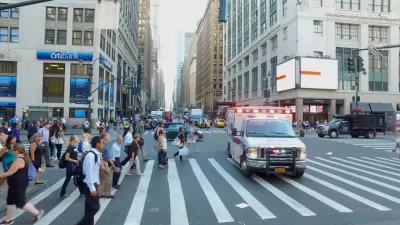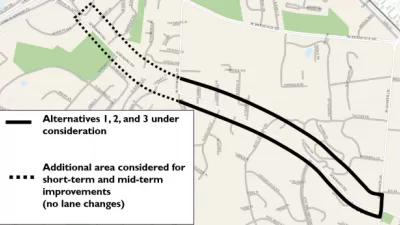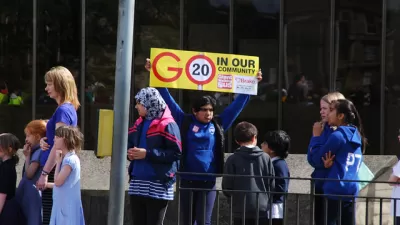Cleveland is working to become the latest U.S. city to set a goal to eliminate traffic fatalities.

Cleveland is putting the finishing touches on a Vision Zero plan following four years of planning, according to an article by Steven Litt for the Plain Dealer. The plan would eliminate traffic fatalities in the city by 2032.
After providing an overview of the international Vision Zero movement, Litt describes the need for traffic safety improvements in Cleveland. “Some 19,000 crashes have occurred on city streets over the past five years,” writes Litt. “The average annual number of deaths from 2016 to 2021 was nearly 55. There were 74 deaths in 2021, and 31 as of August 8 this year” according to Litt’s source in the article, Calley Mersmann, Cleveland’s senior strategist for transit and mobility.
Traffic safety is also much worse in Cleveland’s predominantly Black neighborhoods on the city’s East Side, according to the article.
While traffic fatalities are climbing nationwide, and some cities that have made great fanfare of their adoption of Vision Zero have only seen more traffic fatalities in recent years, there are few notable examples of success, including Fremont, California and Hoboken, New Jersey.
Advocates, such as Angie Schmitt writing for Planetizen in March 2021, say Vision Zero is possible, with the right combination of technological and design changes, notably including speed governors on cars such as the technology required of electric scooters.
The source article, linked below, includes more details about the political and planning partnerships that paved the way for Cleveland’s new Vision Zero initiative. Vision Zero will be considered by the city’s Planning Commission later this week, before heading to the full City Council for final approval.
“The city is also ramping up its Complete and Green Streets program, following City Council approval earlier this year of an updated version of an earlier ordinance carrying the same name,” notes Litt.

Planetizen Federal Action Tracker
A weekly monitor of how Trump’s orders and actions are impacting planners and planning in America.

Maui's Vacation Rental Debate Turns Ugly
Verbal attacks, misinformation campaigns and fistfights plague a high-stakes debate to convert thousands of vacation rentals into long-term housing.

San Francisco Suspends Traffic Calming Amidst Record Deaths
Citing “a challenging fiscal landscape,” the city will cease the program on the heels of 42 traffic deaths, including 24 pedestrians.

Amtrak Rolls Out New Orleans to Alabama “Mardi Gras” Train
The new service will operate morning and evening departures between Mobile and New Orleans.

The Subversive Car-Free Guide to Trump's Great American Road Trip
Car-free ways to access Chicagoland’s best tourist attractions.

San Antonio and Austin are Fusing Into one Massive Megaregion
The region spanning the two central Texas cities is growing fast, posing challenges for local infrastructure and water supplies.
Urban Design for Planners 1: Software Tools
This six-course series explores essential urban design concepts using open source software and equips planners with the tools they need to participate fully in the urban design process.
Planning for Universal Design
Learn the tools for implementing Universal Design in planning regulations.
Heyer Gruel & Associates PA
JM Goldson LLC
Custer County Colorado
City of Camden Redevelopment Agency
City of Astoria
Transportation Research & Education Center (TREC) at Portland State University
Jefferson Parish Government
Camden Redevelopment Agency
City of Claremont





























